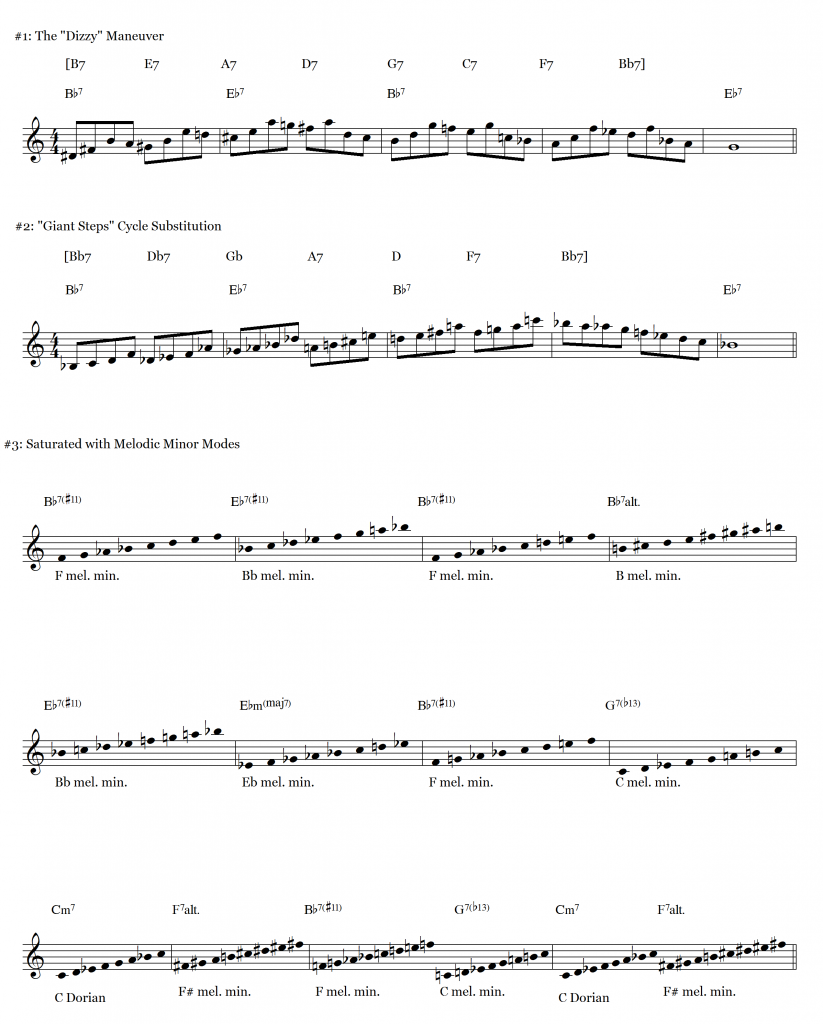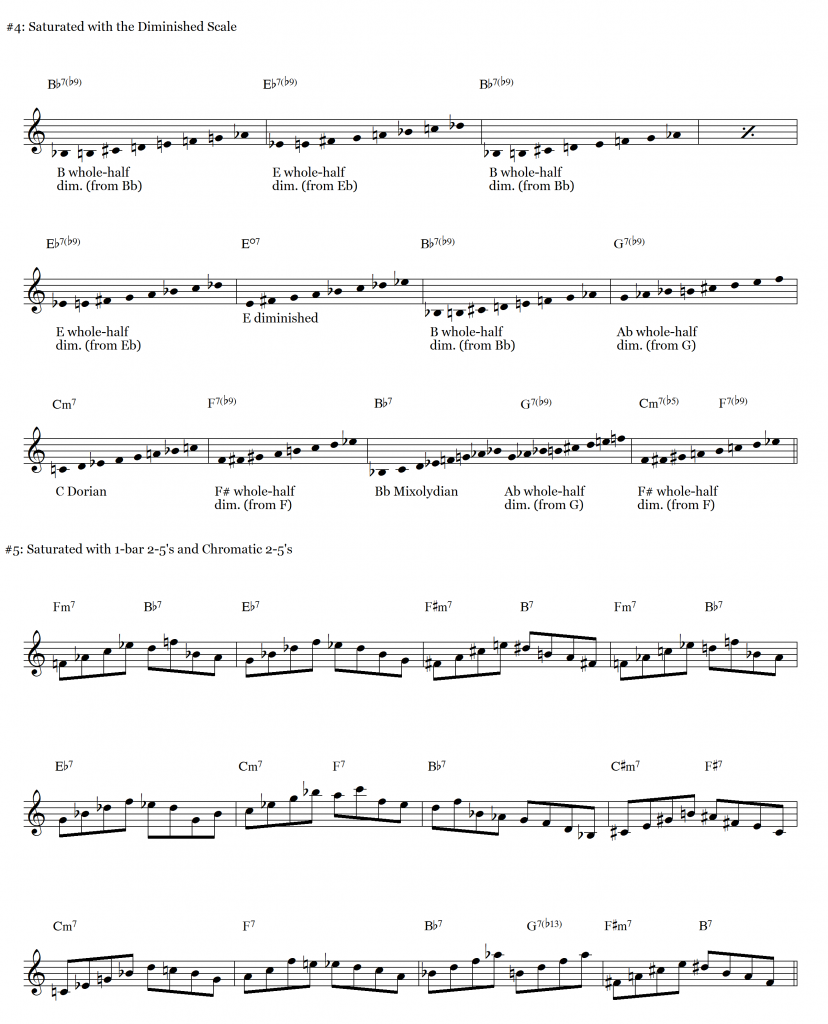The 12-bar blues is one of the most simple, short, and iconic standard jazz forms. As jazz musicians, we all are used to playing blues tunes frequently, which can be both a blessing and a curse. With so many blues choruses to improvise over, it’s easy to find yourself stuck in a rut playing the same types of ideas over and over and again. It’s especially easy to feel boxed in when playing a blues since the form is relatively short, simple, and repetitive.
On the other hand, the very fact that the blues is so simple, repetitive, and easy to hear and follow harmonically can actually be viewed as a liberating circumstance. The blues form is really open-ended and subject to so many variations and alterations, so you can actually get away with playing a lot of different ideas over the blues that are “outside of the box.”
A question I often ponder is, how do I play “outside” the changes – i.e. inject some ear-grabbing chromaticism into a solo, without making my ideas sound just plain “wrong” or “random.” How can I play “out” with logic, clarity, and musical effectiveness and not just sound like I’m lost?
One way to attack this problem is to apply some structure to your “out” ideas. A simple and direct way to create clarity, logic, and a sense of inevitability while playing “outside” the typical blues harmonic framework is to use chord substitutions.
By substituting chord progressions that have a powerful sense of logic, structure, and forward momentum, your “wrong” notes don’t sound wrong even though you’re playing “outside” the key center, because the power of sonic inevitability takes over and lets the listener’s ear override the “wrongness” of temporary dissonance if the dissonant substitution pattern is resolved convincingly.
So, to get your creative juices flowing, here are 5 examples of classic chord substitutions over a Bb blues. These have some super clear melodic patterns to practice that will help you warp your ears and break out of the standard blues chord progression, all while improvising over this classic jazz form (they’re notated below):
-
The “Dizzy” maneuver for the first 4 bars of the blues. I made up this name, because it sounds like the sort of thing Dizzy Gillespie might do and because the circus-like cycling of dissonant dominant 7th chords can feel like a sort of musical merry-go-round. Start one half-step above the tonic key and follow the cycle of ascending 4ths (descending 5ths) using all dominant 7th chords, 2 beats per chord. Also feel free to turn these chords into altered chords or dominant 7 (#11) chords for even more variety.
-
“Giant Steps” substitution: Superimpose the cyclic harmonic pattern from John Coltrane’s Giant Steps over the first 4 bars of the blues (the root movement is up a minor 3rd, up a perfect 4th).
-
Saturate your blues with melodic minor modes (see my post on modes of the melodic minor for a primer for this exercise).
-
Saturate your blues with diminished scales.
-
Saturate your blues with one bar 2-5’s and “side-step” half step approach 2-5’s (treat the dominant 7th chords as one bar 2-5’s and then approach them all from a half-step above).
I hope this inspires you to explore some of the endless possibilities for chord substitutions over the blues. Happy practicing!













